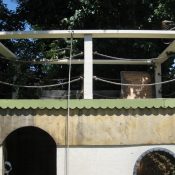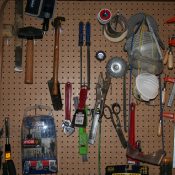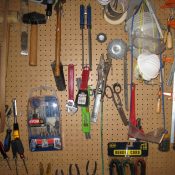For as long as I can remember, every discussion I’ve had with Libertarians ultimately goes to the same syllogism:
All government is a form of force.
All force is bad.
Therefore all government is bad.
I question line #2 of the syllogism, and therefore don’t agree with the conclusion. Why is all force bad? Don’t we need force to protect us? Most Libertarians agree that we need a police force to protect us from bad guys. But we need protection from more bad elements than just bank robbers.
Corporations, driven by the desire to maximize profit (i.e. greed) place financial goals above all others. Left unchecked, they deforest continents, exploit workers, spew pollution, sell unsafe goods, and exploit loopholes in financial markets. Lax regulation led to the recent banking crisis and the BP oil spill. Child labor in unregulated 3rd world countries continues to be a problem supported by our free market, which is far more concerned with cheap jeans and TVs than it is with the welfare of humans. A world where corporations are unregulated is not a world we would want to live in.
It would be awesome if there were an alternative to regulation (force). It would be wonderful if the free market could control the power of greed, but history shows us that it does not… mostly because consumers either don’t know or don’t care what they’re supporting with their purchases. Corporations will work tirelessly to cut corners and find loopholes in order to maximize profit at the expense of the interests of the general population. Not even Adam Smith believed that an unregulated free market could work to the good of the general population.
We need to know that our citizenry are educated; therefore we need force to make sure all of our children go to a satifactory school. I would prefer if force weren’t needed for that, but it is. To keep our population healthy (and from going broke), we need protection from the exploitative practices of health insurers, so we must apply force in two vectors – we must limit what insurers can charge, and we must force our population to have insurance of some kind. Insurance companies have shown us what they’re made of — their interests are personal greed, not public health.
Without government “force” we would have no National Parks — all of that land would have been razed and populated long ago. Without government “force,” we end up with broken systems spiralling out of control at the expense of the people. What alternative to government “force” do we have?
Of course government force can be a dangerous thing too – it needs checks and balances to keep it fair and safe. But our representative form of government, and our system of checks and balances, ensures that ultimately WE ARE the government. We can remove entities that don’t serve us well. We get to look inside of government and control its workings. We don’t have that option with the free market, since we can’t look inside of corporations, can’t take control of them. Healthy governance is open and transparent in ways that the “free” market will never be.
Libertarians, help me out here. When you trot out the old “But government is a form of force” argument, what exactly do you mean to convey? That it’s OK to let greed drive our world rather than common sense? Do you really believe that free market forces can protect us and our land/water from the power amassed by corporations? Do you really want to live in a world with no government?

















